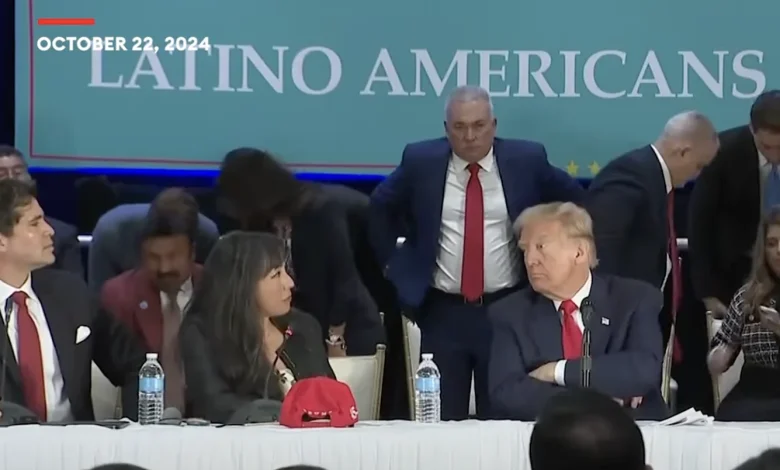US 2026 Midterm Elections: Republicans Fear Latino Voter Drop-Off as Immigration Raids Divide Families

Republicans fear they may lose a huge portion of their Latino voters ahead of the 2026 midterm elections, as strict immigration enforcement measures and rising living costs threaten their Hispanic working class across the US.
Party leaders fear that harsh deportation raids and high grocery prices could drive voters back to Democrats, particularly in states with historically large Hispanic populations.
Following ICE crackdowns, many Latino voters are reportedly angered by what they see as ‘overly aggressive enforcement’ from the Trump administration.
Latino Communities React to Immigration Raids and Living Costs
Since the start of his administration, Trump has deployed National Guard troops and Immigration and Customs Enforcement (ICE) to cities dominated by Latino communities, such as Los Angeles.
Associate professor at the University of California Merced, Daisy Reyes explained that immigrant families who had supported Trump in 2024 feel personally threatened or singled out by his admin policies. ‘They certainly had this narrative that they weren’t going to go after their families’, she said.
According to the Independent, Reyes noted that the execution of policy has left many feeling betrayed and fearful.
Alongside immigration issues, rising costs are also shaping voter behaviour.
Often working-class, Latino households are acutely sensitive to inflation at supermarkets, fuel, and housing. Representative Tony Gonzales of Texas warned that economic pressures weigh heavily on voting decisions. ‘We’re very family-oriented people. We want to make sure our family is protected, but our pocketbook matters. It matters a lot’, he said.
Even in places where Trump previously won by a large margin, Latino voters are now changing their opinions after feeling the effects of the ICE crackdown and high living costs.
For example, although Trump won Imperial County in the 2024 presidential election, 60% of voters supported Proposition 50 in 2025. This means redrawing congressional districts to favour Democrats.
Trump holding up a presidential proclamation he signed on the first day of his second term in office, January 20, 2025
Wikimedia Commons
Analysts suggest that economic populism and family security now outweigh party loyalty for many Hispanic voters.
Republican Leaders Sound the Alarm
Republican politicians are warning that Latino voters could abandon the party if the current course continues.
Representative Maria Elvira Salazar of Florida urged the GOP to reconsider its approach.
‘Wake up. Wake up’, she warned, stressing that ignoring both immigration concerns and affordability could cost the party its previous gains from the community.
Salazar has proposed the Dignity Act herself. It offers legal status, but not citizenship, to undocumented immigrants who have committed no crimes, as a potential bridge to retain Latino support.
(Screenshot: Forbes YouTube)
Other Republican figures, including Rep. Monica De La Cruz of Texas, echoed similar sentiment about home ownership and affordable living in retaining voter support.
US 2026 Midterm Elections: Will Republicans Lose Latino Voters?
Analysts suggest that instead of relying solely on party loyalty or political slogans, Republicans could connect better with Latino communities by addressing these practical concerns. MAGA loyalists would still vote for Republicans nonetheless, but it might be more effective in resonating with the Hispanic community.
Representative Alexandria Ocasio-Cortez of New York, speaking from a Democratic perspective, noted that Latino voters often prioritise economic stability over party loyalty.
‘Consequently, that means that economic populism is an effective message, and focusing on working-class people, focusing on working-class issues, I think, is really what this moment is about’, AOC noted.
For now, with the midterm elections underway for 2026, Republicans face a critical challenge: commit to their ‘promised’ immigration agenda for MAGA supporters and address concerns of Latino voters if they hope to maintain the gains Trump achieved in 2024.





